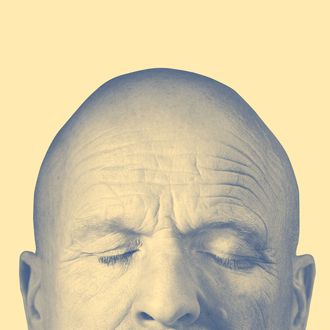
One of the finest subreddits is r/Showerthoughts, wherein redditors “share all those thoughts, ideas, or philosophical questions that race through your head when in the shower.” Posts tend toward the observational and absurd, as in:
• “Barn owls must have been stoked when the barn was finally invented.”
• “If you go into a fake time machine, you still come out in the future.”
• “The reason Hermione was such an “insufferable know-it-all” was so that she could explain everything about magic to the muggles reading the books.”
Brilliant, right? Beyond the hilarity, the subreddit is a case study in how routine activities like showering give your mind free space, which often enables weirdness. And new research is finding that this is precisely the sort of situation — high in familiarity, low in demands — where you’re likely to have your most far-flung ideas.
In a study published in Psychological Science, researchers Shira Baror and Moshe Bar at Bar-Ilan University in Israel tested the creativity of study participants while they had high or low mental “loads,” or the amount of things to juggle in their working memory. As Bar detailed in a column for the New York Times, the level of creativity was measured by free association tasks: Participants were given a word (for example, shoe) and asked to give the first response that came to mind (sock). At the same time, they were asked to attend to an easy or challenging cognitive task: in one experiment, holding a two-digit or six-digit string of numbers in mind; in the next, holding a two-digit or seven-digit string of numbers in mind; in the next, naming the alphabetical order of the first two or three letters of a word; and in another attending to the color of letters in a word.
Baror and Bar found that the people with the highest mental loads gave the most statistically common replies, like “black” when given “white,” while people with the two-digit load gave more far-flung replies like “cloud” to “white.” To Bar, who’s also a professor at Harvard Medical School, the study attests to what he takes to be the exploratory nature of the mind: seeking novelty when it’s unencumbered, but turning to the “most familiar and inevitably least interesting solution” when occupied.
Beyond showing even further evidence for why people who perpetually thumb at their phones are such terrible conversation partners, the study sheds light on a bunch of different areas. The originality — or lack of it — that came with mental load demonstrates how creativity isn’t entirely a fixed, inborn trait; it’s an aperture that can be opened or closed. Also, the study lends some much needed texture to the popular dialogue around how mindfulness relates to thought: Rather than getting rid of thoughts like they’re some sort of pest, the study suggests that a quieter mind yields more creative ideas. Indeed, Bar, who writes about he goes on a seven-day silent meditation retreat as a birthday gift every year, reports “fresher and more surprising” thoughts after an extended practice period. And his work also speaks to the mind-clearing (and creative) magic of running: When you have nothing to think about, you can do your best thinking. You don’t even have to be in the shower.




